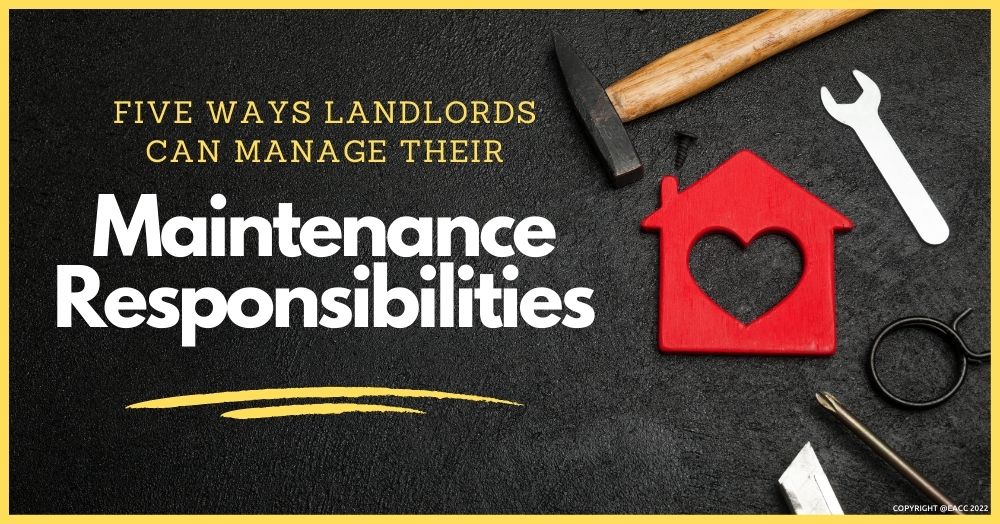This two-minute read details a five-point plan to help landlords manage their maintenance responsibilities.
There’s no quick fix when it comes to maintenance and repairs; to avoid stressful and costly tenant disputes, landlords need to be organised and proactive.
Who is responsible for what?
Always check your contract, but as a general rule, landlords are responsible for structural features like walls and chimneys, along with windows, drains, stairs, toilets, showers, pipework, the boiler, and electrics.
If the property has a garden, the landlord is responsible for things like lopping tree branches and repairing fences.
But it’s a two-way street, and tenants have responsibilities, too. They must keep the property in good condition and repair any damage they cause. (If, for example, they make a hole in a wall, it’s up to them to fix it.)
Crucially, tenants also must notify the landlord if there’s a problem.
Five tips for managing repairs and maintenance
Be clear about responsibilities
It’s best if both parties understand their responsibilities from the outset – and that these are clearly outlined in writing.
- Fix problems promptly
Don’t drag your heels when a tenant raises an issue, as this will only breed animosity. Being a landlord is a round-the-clock job – be prepared for a call at any time of day or night (unless you have a letting agent managing the property).
- Good communication
It’s amazing how much goodwill you can generate by being professional and polite. Check in with your tenant regularly and keep them updated about any repair works.
- Regular inspections
With regular inspections, you can spot minor issues and address them before they become major repair jobs. Also, a tenant is more likely to look after your property if they know you’re a hands-on property manager (or if your letting agent is on the ball).
- Have a maintenance plan
As a landlord, you have a duty of care to ensure the property is safe – failure to do so could land you in court and invalidate your insurance. Have a clear maintenance plan and arrange mandatory electrical and boiler checks on time.
Bonus tip
Entrust the management of your property to a letting agent so you can focus on your work and family commitments and enjoy peace of mind, 365 days of the year.
Get in touch with us here at Hi Residential to learn more about our property management services.





